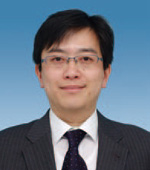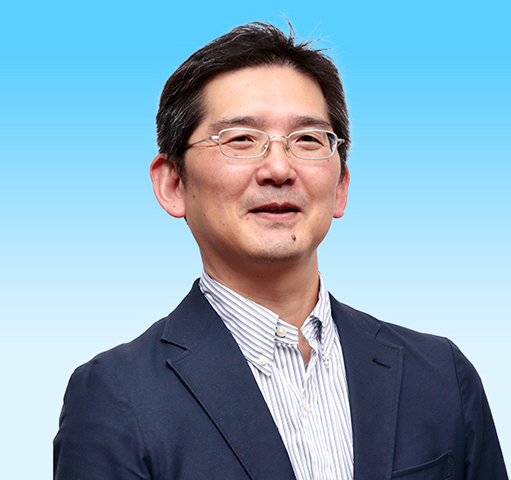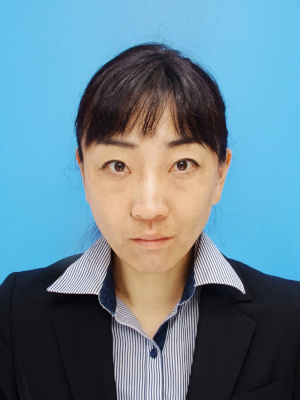トップページ
 イベント・広報
イベント・広報
 R-CCS Cafe
R-CCS Cafe
 R-CCS Cafe 第265回(2024年7月1日)
R-CCS Cafe 第265回(2024年7月1日)
R-CCS Cafe 第265回(2024年7月1日)
English| 開催日 | 2024年7月1日(月) |
|---|---|
| 開催時間 | 15:00 - 17:20(15:00 - 16:00 講演者3名による講演、16:00 - 16:20 討論、16:20 - 自由討論とコーヒーブレイク(参加自由)) |
| 開催都市 | 兵庫県神戸市/オンライン |
| 場所 | 計算科学研究センター(R-CCS)6階講堂/Zoomによる遠隔セミナー |
| 使用言語 | 発表・スライド共に英語 |
| 登壇者 |
佐野 健太郎 プロセッサ研究チーム  今村 俊幸 大規模並列数値計算技術研究チーム  辻 美和子 量子HPCソフトウェア環境開発ユニット  |
講演題目・要旨
1st Speaker: Kentaro Sano
Title:
Architectures for future computing - from CGRA for HPC and AI to near-sensor/device custom computing -
Abstract:
At Processor research team and the next-generation AI device research-and-development unit, we research future architectures for HPC and AI. Especially, we are focusing on reconfigurable computing architectures such as coarse-grained reconfigurable array (CGRA), which can be advantageous for limited data movement resulting in lower power consumption, as well as FPGA-based custom computing for near-sensor/device processing. In this talk, I introduce our previous research on FPGA-based reconfigurable HPC and share lessons learned, and then show RIKEN CGRA project for HPC and AI, FPGA-based edge-computing projects for SPring-8 detector and fault-tolerant quantum computers.
2nd Speaker: Toshiyuki Imamura
Title:
The recent advanced research on numerical linear algebra
Abstract:
With its unwavering commitment, the large-scale parallel numerical computing technology research team has been at the forefront of establishing universal and portable HPC mathematical software for emerging systems on the earth. Our past achievements include the development of several original numerical libraries supported on Fugaku, such as EigenExa, FFTE-C, dissection, Batched BLAS generator, tmBLAS, and more. These accomplishments are a testament to our team's dedication and expertise in numerical linear algebra.
In our recent work, 'mixed precision' has emerged as a significant keyword. This approach, which involves considering multiple data formats simultaneously, is crucial for maximizing processors' potential and aligning with future architectural trends.
As we recognized the complexities of utilizing AI-driven or AI-empowered processors, also known as NPU, for numerical operations, we have encountered various challenges. However, our team's unwavering dedication and expertise have led us to develop innovative solutions. These include a multi-component data format for high-precision, double-double, or pair-arithmetic technologies. Ozaki's scheme is a testament to our team's and the Japanese HPC community's innovative work history. These solutions have shown promising results under high-performance and massively equipped low-precision arithmetic mechanisms such as NPUs, instilling confidence in our ability to overcome these challenges.
We have been conducting research activities focusing on these fundamental technologies. As part of our fundamental activities, I would like to discuss the prospects of mX_real and Ozaki's scheme.
3rd Speaker: Miwako Tsuji
Title:
Design and Development of Quantum HPC Hybrid Software Environment
Abstract:
Last year, which was a first year of the quantum HPC hybrid platform division, we had investigated requirements for the quantum HPC Hybrid software environment and designed our software. In this talk, I will introduce our "HPC-oriented" quantum HPC Hybrid software design and current states of their developments.
注意事項
- 参加の際はPCマイクの音声・ビデオをオフにされるようお願いいたします。
- 当日の会場環境や通信状態により、やむなく配信を中止・中断する場合がございます。
- プログラムの内容、時間は予告なく変更される場合があります。
- ご使用の機器やネットワークの環境によっては、ご視聴いただけない場合がございます。
- インターネット中継に関する著作権は、主催者及び発表者に帰属します。なお、配信された映像及び音声、若しくはその内容を、理化学研究所の許可無くほかのウェブサイトや著作物等への転載、複製、改変等を行うことを禁じます。
(2024年6月21日)
